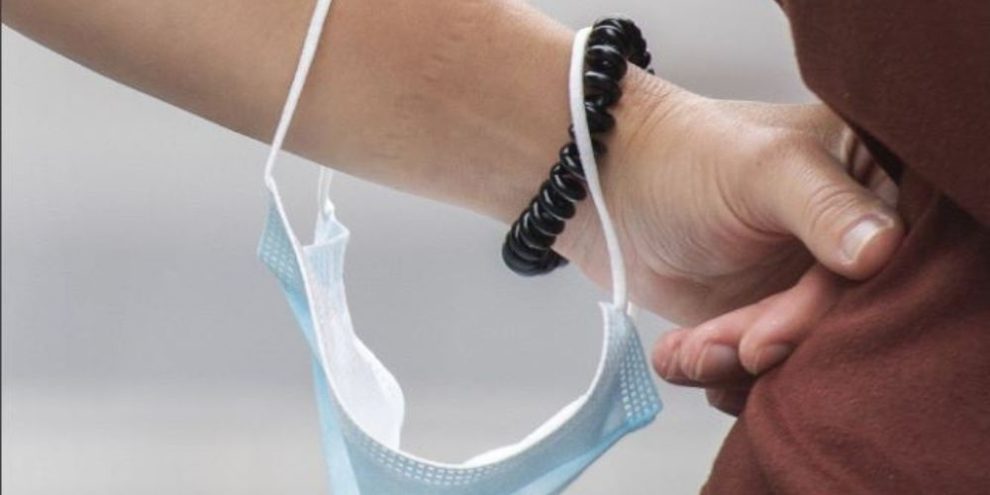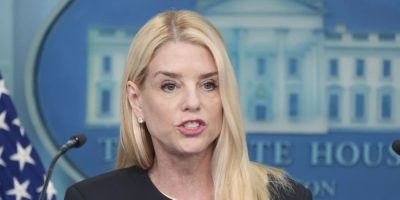
By Cassandra Szklarski in Toronto
A plea by health officials to resume masking in Ontario and Quebec is a tall order that is unlikely to take hold without a significant culture shift, say observers who point to pandemic fatigue, mixed messages and divisive politics as likely hurdles.
The fact that a renewed push for personal protective measures remains voluntary means many people will consider it optional, and possibly even unnecessary, says behaviour expert and York University associate professor Rebecca Bassett-Gunter.
She notes that many people abandoned masks altogether after most pandemic precautions were lifted earlier this year.
It’s not clear that weeks of warnings from overwhelmed hospital staff over the “triple threat” of viral infections is enough to get those same people to put their masks back on.
“Without mandating it, I think people are hearing a message that it must not be as bad as it was,” says Bassett-Gunter, whose research at the school of kinesiology and health science has included a look at how to get people to comply with COVID-19 precautions.
“That's a really hard implicit message to override, unfortunately.”
Add in pandemic fatigue and a yearning for festive holiday gatherings to return after two seasons of restraint, and public health officials face a tough psychological wall to break through, adds Dr. Eddy Lang, professor and department head for emergency medicine at the Cumming School of Medicine at the University of Calgary.
While his province isn't seeing a surge in respiratory syncytial virus and influenza cases to the same degree as Ontario and Quebec, he noted cases are expected to increase as cold and flu season progresses.
"When we look at the wastewater analysis, RSV is still on the rise, which suggests that the worst of it may still be yet to come," Lang said.
Already, a wave of viral illnesses among young students has pushed hospital capacity to dangerous levels. But given Alberta Premier Danielle Smith’s stated opposition to a school mask mandate, Lang doubts a masking plea is imminent or that there is much public support for more precautions.
“People are just so tired of public health directives,” says Lang.
“Until we really see a cultural shift ... I don't think this is going to work particularly well or give us much of an impact against hospitalizations.”
Health authorities in Canada’s two most populous provinces issued strong recommendations on Monday for people to mask up indoors to mitigate the spread of respiratory viruses that have overwhelmed hospitals and pediatric centres.
Ontario's chief medical officer of health, Dr. Kieran Moore, stressed the vulnerability of babies and children younger than five to unseasonably high rates of RSV and rising rates of influenza. At the same time, he warned of emerging COVID-19 variants.
Quebec's college of physicians made a similar appeal that the public don masks on a “voluntary and preventive basis” in public places, crowded private spaces and on public transit.
Last week, Canada's top doctor stressed the need for "stepped-up precautions" while warning that COVID-19, RSV and the flu were challenging the health system in several parts of the country.
Turney McKee of the Montreal-based consultancy group Decision Lab was skeptical that "a mere recommendation" would be enough to drive the adoption needed to mitigate public health risks.
“Sure, our attitudes or values may align with one course of action, but then when actually put in the situation to either comply or not to comply, I think it's very likely that we see a disconnect,” says McKee.
He sees politics as less a driver than fatigue, convenience and social pressure.
“When the mandate is no longer there, if it is no longer convenient, we're probably going to stop,” says McKee, whose firm uses applied behavioural science to guide advice for organizations and government clients.
"And when we see everyone else around us starting to stop, the social influence can be very potent.”
However, that's not to say this public health plea is completely powerless.
It sends a clear signal that stronger measures could follow and that the public should brace for a potential mandate, says McKee.
"It primes people to expect that maybe some more heavy-handed measures are around the corner,” he says.
Moore said a mask mandate could be possible if Ontario's health-care system continues to see an increase in pressure due to respiratory illnesses, though he said that would be “the furthest we'd have to go.”
This report by The Canadian Press was first published Nov. 15, 2022.
Banner image: THE CANADIAN PRESS/Graham Hughes






